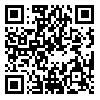Volume 9, Issue 2 (5-2022)
JROS 2022, 9(2): 69-78 |
Back to browse issues page
Download citation:
BibTeX | RIS | EndNote | Medlars | ProCite | Reference Manager | RefWorks
Send citation to:



BibTeX | RIS | EndNote | Medlars | ProCite | Reference Manager | RefWorks
Send citation to:
Norasteh A A, Zolghadr H. Functional Tests and Their Reliability for Return to Sport After Shoulder Injuries: A Review Study. JROS 2022; 9 (2) :69-78
URL: http://jros.iums.ac.ir/article-1-2201-en.html
URL: http://jros.iums.ac.ir/article-1-2201-en.html
1- Department of Physiotherapy, Faculty of Medicine, Guilan University of Medical Sciences, Rasht, Iran.
2- Department of Sport Injuries and Corrective Exercise, Faculty of Sport Sciences, University of Guilan, Rasht, Iran.
2- Department of Sport Injuries and Corrective Exercise, Faculty of Sport Sciences, University of Guilan, Rasht, Iran.
Abstract: (2357 Views)
Background: Understanding the relationships between exercise and performance tests is crucial for the sports rehabilitation expert.
Objectives: To comprehensively review functional tests and their reliability for return to sport (RTS) after shoulder injuries.
Methods: During this research, a comprehensive review of the functional tests for RTS after shoulder injuries was performed by searching the Web of Science, PEDro, Google Scholar, PubMed, ScienceDirect, SCOPUS, and CINAHL databases with the keywords shoulder RTS, return to play, upper limb and shoulder functional tests from 2000 to June 2021. English was used in this search. After gathering the research results, first, the titles and then the summary of the research papers were studied. If the research papers meet the inclusion and exclusion criteria, their results will be utilized in the study of review otherwise they will be excluded.
Results: When searching the texts, 123 research papers were found, after deleting 11 identical titles, 112 abstracts were chosen for review. After analyzing the abstracts, 79 research papers were removed and 33 research papers were selected for full study. After reviewing the full-text research papers, 21 research papers were removed and 12 research papers were selected from among the research papers that were very closely related to the subject under study. Many functional tests exist, but few have been studied to evaluate the RTS after a shoulder injury.
Conclusion: Functional tests can assist in estimating when an athlete will RTS or exercise without restrictions. Therefore, according to the results of the current research, functional tests can be an effective tool to assess RTS after shoulder injuries, but due to the limitations and lack of information in this area, further studies are required to be conducted. Therefore, caution should be taken and a general rule should not be drawn for all shoulder injuries.
Objectives: To comprehensively review functional tests and their reliability for return to sport (RTS) after shoulder injuries.
Methods: During this research, a comprehensive review of the functional tests for RTS after shoulder injuries was performed by searching the Web of Science, PEDro, Google Scholar, PubMed, ScienceDirect, SCOPUS, and CINAHL databases with the keywords shoulder RTS, return to play, upper limb and shoulder functional tests from 2000 to June 2021. English was used in this search. After gathering the research results, first, the titles and then the summary of the research papers were studied. If the research papers meet the inclusion and exclusion criteria, their results will be utilized in the study of review otherwise they will be excluded.
Results: When searching the texts, 123 research papers were found, after deleting 11 identical titles, 112 abstracts were chosen for review. After analyzing the abstracts, 79 research papers were removed and 33 research papers were selected for full study. After reviewing the full-text research papers, 21 research papers were removed and 12 research papers were selected from among the research papers that were very closely related to the subject under study. Many functional tests exist, but few have been studied to evaluate the RTS after a shoulder injury.
Conclusion: Functional tests can assist in estimating when an athlete will RTS or exercise without restrictions. Therefore, according to the results of the current research, functional tests can be an effective tool to assess RTS after shoulder injuries, but due to the limitations and lack of information in this area, further studies are required to be conducted. Therefore, caution should be taken and a general rule should not be drawn for all shoulder injuries.
Type of Study: Review Paper |
Subject:
Shoulder / Elbow
Received: 2022/07/28 | Accepted: 2022/12/24 | Published: 2022/05/1
Received: 2022/07/28 | Accepted: 2022/12/24 | Published: 2022/05/1
| Rights and permissions | |
 |
This work is licensed under a Creative Commons Attribution-NonCommercial 4.0 International License. |









